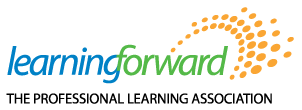Standards for Professional Learning
Learning Forward presents Standards for Professional Learning to describe the conditions, content, and processes for professional learning that leads to high-quality leading, teaching, and learning for students and educators.
The 11 Standards work within a framework to outline a system for professional learning. To create high-quality professional learning that results in improved educator practices and improved student results, educators apply the 11 standards in concert.
The three categories within the framework follow:
-
- Standards within the Rigorous Content for Each Learner frame describe the essential content of adult learning that leads to improved student outcomes.
-
- Standards within the Transformational Processes frame describe process elements of professional learning, explaining how educators learn in ways that sustain significant changes in their knowledge, skills, practices, and mindsets.
-
- Standards within the Conditions for Success frame describe aspects of the professional learning context, structures, and cultures that undergird high-quality professional learning.
The diagram illustrates the tight connections among all standards and the nonlinear nature of the system. Educators may enter the Standards for Professional Learning from any point. The diagram also echoes the cyclical, iterative nature of how professional learning leads to continuous improvement.
Standards for Professional Learning
| Professional learning results in excellent outcomes for all students when educators ...
LEARNING PRACTICES ... understand their students’ historical and societal contexts, embrace student assets through instruction, and foster relationships with students, families, and communities. CURRICULUM, ASSESSMENT, AND INSTRUCTION ... prioritize high-quality curriculum and instructional materials for students, assess student learning, and understand curriculum and implement through instruction. PROFESSIONAL EXPERTISE ... apply standards and research to their work, develop the expertise essential to their roles, and prioritize coherence and alignment in their learning. |
|
| Professional learning results in excellent outcomes for all students when educators ...
LEARNING DRIVERS ... prioritize the learning needs of all students and educators, identify and address their own perspectives and beliefs, and collaborate with colleagues who hold various perspectives. EVIDENCE ... create expectations and build capacity for use of evidence, leverage evidence, data, and research from multiple sources to plan educator learning, and measure and report the impact of professional learning. LEARNING DESIGNS ... set relevant and contextualized learning goals, ground their work in research and theories about learning, and implement evidence-based learning designs. IMPLEMENTATION ... understand and apply research on change management, engage in feedback processes, and implement and sustain professional learning. |
|
| Professional learning results in excellent outcomes for all students when educators ...
LEARNING FOUNDATIONS ... establish expectations that everyone will learn, create structures to ensure access to learning, and sustain a culture of support for all staff. CULTURE OF COLLABORATIVE INQUIRY ... engage in continuous improvement, build collaboration skills and capacity, and share responsibility for improving learning for all students. LEADERSHIP ... establish a compelling vision for professional learning, sustain coherent support to build educator capacity, and advocate for professional learning by sharing the importance and evidence of impact of professional learning. RESOURCES ... allocate resources for professional learning, prioritize all learners in their resource decisions, and monitor the use and impact of resource investments. |
|
